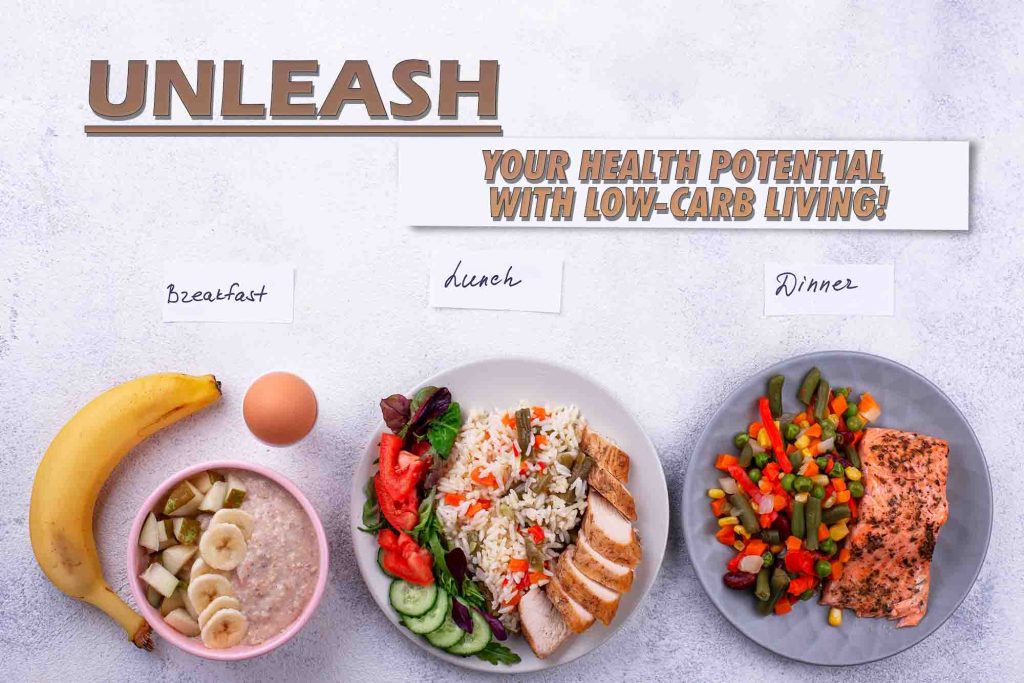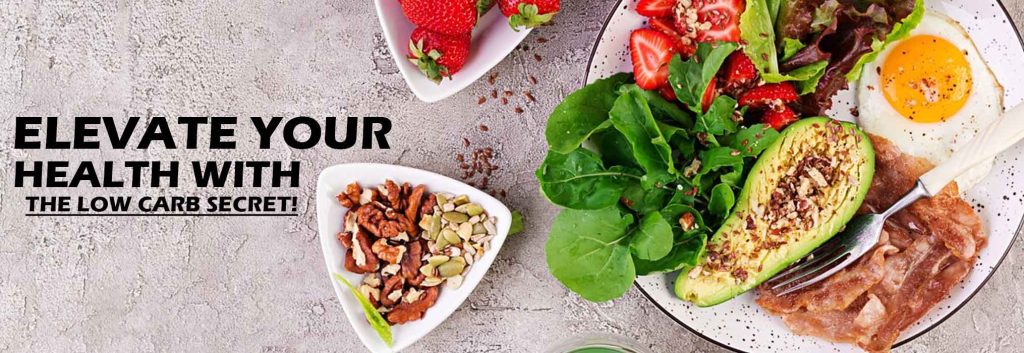Are you eager to transform your eating habits for the better? If so, a low carb diet might be just the approach you're looking for. Whether you're completely new to this concept or have some familiarity, we're here to guide you through the ins and outs of embarking on a low carb journey.
Understanding the Low Carb Diet

At its core, a low carb diet is centered around minimizing your intake of carbohydrates. Carbohydrates are found in a wide range of foods, including bread, pasta, rice, potatoes, and sugary snacks. When you consume these foods, your body breaks down the carbohydrates into sugar (glucose), which is then used for energy.
However, by reducing carb intake, your body shifts its primary source of energy from glucose to fat. This metabolic shift can bring about a host of benefits, making the low carb diet a popular choice for those seeking to enhance their health and well-being.
Reasons to Consider a Low Carb Diet
Certainly! A low carb diet has gained popularity for various reasons, each contributing to its appeal for individuals seeking to improve their health, manage their weight, or address specific health conditions. Here are 15 reasons to consider a low carb diet:
- Weight Loss: A primary reason people adopt a low carb diet is its potential for effective weight loss. By reducing carb intake, the body shifts to burning stored fat for energy, leading to weight reduction over time.
- Reduced Hunger: Protein and fats, staples of a low carb diet, tend to be more satiating than carbs. This can result in reduced hunger and fewer cravings, making it easier to control your calorie intake.
- Stable Blood Sugar: Low carb diets can help stabilize blood sugar levels, making them beneficial for individuals with diabetes or those at risk of developing the condition. Fewer carbs mean fewer blood sugar spikes and crashes.
- Improved Insulin Sensitivity: Cutting back on carbs can enhance your body's sensitivity to insulin, the hormone responsible for regulating blood sugar. This can be particularly helpful for people with insulin resistance or type 2 diabetes.
- Enhanced Heart Health: Some studies suggest that a low carb diet can improve heart health markers, such as reducing triglycerides, LDL cholesterol (often referred to as “bad” cholesterol), and blood pressure.
- Lower Risk of Metabolic Syndrome: Metabolic syndrome is a cluster of conditions that increase the risk of heart disease, stroke, and type 2 diabetes. A low carb diet may help reduce the risk factors associated with metabolic syndrome.
- Increased HDL Cholesterol: HDL cholesterol, often referred to as “good” cholesterol, helps remove excess cholesterol from your bloodstream. Some research indicates that a low carb diet can raise HDL levels.
- Reduced Inflammation: Chronic inflammation is linked to various health issues, including heart disease, diabetes, and obesity. A low carb diet may help reduce inflammation markers in the body.
- Better Mental Clarity: Some individuals report improved mental clarity and focus on a low carb diet. Stable blood sugar levels and ketone production (a result of fat metabolism) could contribute to this cognitive boost.
- Enhanced Energy Levels: Relying on fats and proteins for energy instead of carbs can lead to more sustained energy levels throughout the day, reducing the energy crashes associated with carb-rich meals.
- Effective for Polycystic Ovary Syndrome (PCOS): A low carb diet may help manage symptoms of PCOS, a hormonal disorder that can cause irregular periods, fertility issues, and weight gain.
- Potential Cancer Prevention: While research is ongoing, some studies suggest that a low carb diet might have a role in reducing the risk of certain types of cancers, possibly due to its impact on insulin and inflammation.
- Improved Triglyceride Levels: Triglycerides are a type of fat in the blood linked to heart disease risk. A low carb diet can help lower triglyceride levels, improving heart health.
- Better Blood Pressure Control: Lowering carb intake may lead to reduced blood pressure, especially for individuals with high blood pressure.
- Positive Effects on Skin: Some individuals experience improvements in skin conditions like acne when following a low carb diet, possibly due to reduced sugar and refined carb consumption.
Embarking on Your Low Carb Journey: Step by Step

- Educate Yourself about Carbs: Start by familiarizing yourself with the carb content of common foods. Carbohydrates are found not only in grains and sugars but also in some fruits and vegetables. Reading nutrition labels can help you become more carb-conscious.
- Choose Quality Carbs: Not all carbs are created equal. Opt for complex carbs found in whole, unprocessed foods like vegetables, fruits (in moderation), and whole grains. These provide essential nutrients and fiber that promote overall health.
- Prioritize Protein: Protein is a cornerstone of the low carb diet. Incorporate lean meats, poultry, fish, eggs, and vegetarian protein sources such as beans and tofu into your meals. Protein supports muscle maintenance and helps keep you feeling full.
- Embrace Healthy Fats: Don't shy away from fats – the right kinds can be incredibly beneficial. Avocado, nuts, seeds, olive oil, and fatty fish are rich sources of healthy fats that support various bodily functions.
- Plan Your Meals: Meal planning is a key component of successfully adopting a low carb lifestyle. Design balanced meals that include a protein source, healthy fats, and plenty of non-starchy vegetables. This approach makes it easier to avoid reaching for carb-heavy snacks when hunger strikes.
- Snack Mindfully: Finding suitable low carb snacks can be a challenge, but options like nuts, cheese, Greek yogurt, and veggie sticks with hummus are great choices to keep you satisfied between meals.
- Stay Hydrated: Hydration is essential, no matter what diet you're following. Water supports digestion, helps regulate body temperature, and aids in various bodily functions. Aim to drink water consistently throughout the day.
- Practice Patience: As your body adapts to a low carb diet, you might experience some changes. Be patient with yourself as you learn to navigate these adjustments.
Pro Tips for Success

- Listen to Your Body: Pay attention to your body's hunger and fullness signals. Eat when you're genuinely hungry and stop when you're satisfied.
- Variety is Key: Eating a diverse range of foods not only keeps your meals interesting but also ensures you're getting a broad spectrum of nutrients.
- Consult a Professional: Before making significant dietary changes, especially if you have any existing health conditions, consider seeking guidance from a healthcare provider or registered dietitian.
Remember that everyone's journey is unique, and there's no one-size-fits-all approach to nutrition. While a low carb diet offers numerous benefits, it's important to find an eating pattern that aligns with your personal preferences and health goals. By thoughtfully integrating these principles into your daily routine, you can embark on a path toward improved well-being and vitality.









No Comment! Be the first one.